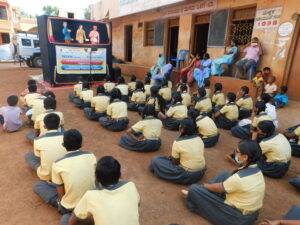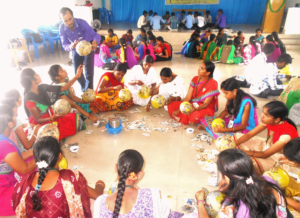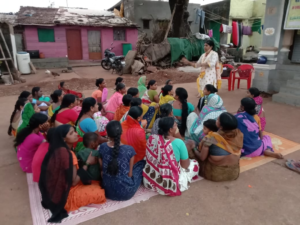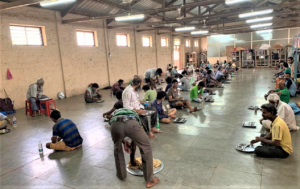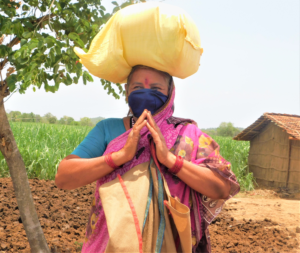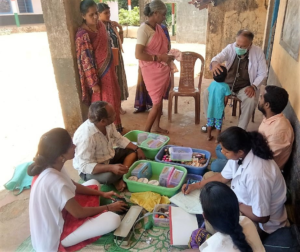Empowerment Of Women Domestic Workers In Belgaum
The Predicament
Official statistics place the number of domestic workers employed in India as 4.75 million (of which 3 million are women), but this is considered a severe underestimation and the true number to be between 20 million to 80 million workers! Women count for over 70% of domestic workers. They take care of cleaning and household maintenance, or cooking, laundry and ironing, or care for children and elderly dependents and other household errands.
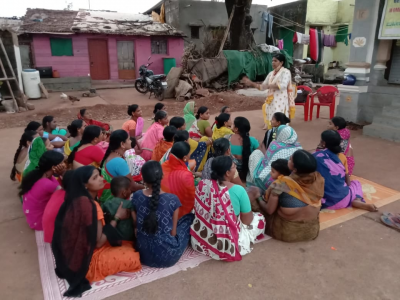
What is the biggest problem Domestic Workers face?
The biggest problem facing domestic workers across the country is their non-recognition as workers. Domestic workers don’t come under labour laws – they have no right to workers’ compensation, weekly holidays and minimum wages. They are employed on a temporary, part-time or full-time basis. The terms of employment may be expressed or implied. These workers do the most menial arduous tasks, have impossibly long hours with no social security benefits, security of employment, wage raises, paid leave or medical facilities etc. No Labor laws cover Domestic Workers. They do not enjoy legal protection, rights and dignity. Hence domestic work is reduced to nothing but a contemporary form of slavery.
What is Domestic Work as employment?
Domestic work is one of the main occupations of women worldwide. For many women, it is one of the very few options for paid employment. All of them come from the poorer sections of society. Many are migrants from rural areas to towns/cities. Domestic workers play an important role in the social life of the community. Domestic workers are employed for household chores like cooking, cleaning (dusting, sweeping and mopping the house), washing (clothes and/or utensils), ironing marketing, running errands, childcare, and care of the aged or disabled, etc. This household work done by the domestic workers is vital for the wellbeing of the family.
What makes the Domestic worker's condition miserable?
There are many children engaged in this work and are too vulnerable to abuse. Many are at risk of extreme abuse. In spite of the important role played by the domestic worker, they are the most neglected and vulnerable lot. The National Survey on Domestic Workers shows that they are in a state of dependency, exploitation and quasi bondage. Domestic workers are generally not considered workers, and their working conditions remain unregulated. Their employment situation is deemed not to fit the general framework of existing employment laws. This is because most work done by them is generally invisible, done in houses (not considered workplaces) of private persons (not considered employers). Remaining excluded from protection under the national labour codes, these workers have no benefits of work contracts, social security, and security of employment, wage increment, paid leave or medical facilities.
The Solution
In order to protect the rights of the women Domestic workers by the process of empowering them, SEVAK, with the assistance of Fideel Foundation, Netherlands, implemented the Empowerment of Domestic Workers project in Belagavi and Mangalore cities. The project aims to identify and resolve the issues of concern to the domestic labours working in the large number in these two cities. A total of 7000+ domestic workers have identified and organized as an association and with the collaboration and assistance of the Labor department getting welfare and development schemes from the government.
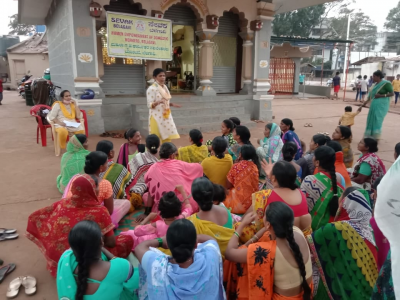
What is the recent development in the Law for Domestic Workers?
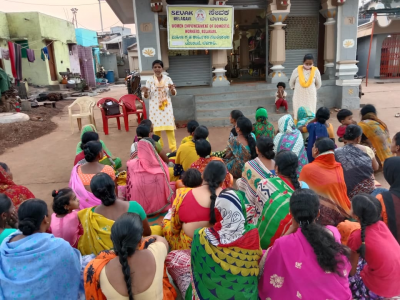
After a series of demonstrations and advocacy on Domestic workers in New Delhi and other cities of the country, the Central government of India has included domestic workers in provisions under the Unorganized Sector Workers’ Social Security Act. The Law was passed in the year of 2008. It is intended for the whole of India. The act “provides welfare for unregistered workers and for other matters connected therewith or incidental thereto“.
Be a part of the beacon of hope.
We sincerely believe every one of us recognizes the value of domestic workers, and as humans, we have strong empathy for the suffering of other beings. We have now taken a step in the right direction regarding the wellbeing of domestic workers. Now it is upon us to make the contribution that we are capable of to recognize the domestic workers’ value and rights. Our empowerment program is intended to identify and resolve the issues of domestic workers and has found much success in its area of implementation.
Join us and be a part of this important mission to help Women domestic workers and empower them so that their work is respected and compensated.
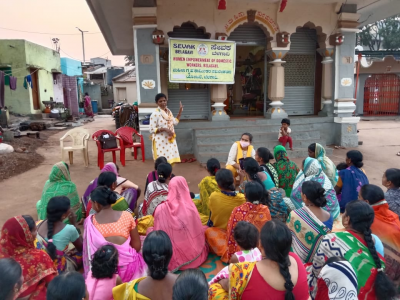
About Us

S E V A K stands for Society for Empowerment through Voluntary Action in Karnataka. S E V A K was founded in the year 2009 as a registered society registered under the Karnataka Societies Registration Act, 1960 in Belgaum district, Belgaum.
Links
- Home
- About Us
- Projects
- IMAGE K
- Children Empowerment for Good
- Community Health
- Community Monitorin of PDS
- Covid-19 Crises Response
- Empowerment of Women Domestic workers in Belgaum
- North Karnataka Floods Relief
- Initiating workshops on Nutrition Education for Women and Adolescent Girls
- Science Communication Through Traditional Puppetry
- Self Help Group & Women Empowerment
- Community Awareness for Responding Covid 19
- Note Book Distribution for the Students
- What We Do
- Resources
- Gallery
- News Letter
- Impact
- Contact Us
Contact Us
-
Location
No. 3826, Nityadhar building, Tipu Sultan Nagar, Machhe, Belagavi – 590014 Karnataka, India
-
Phone No
08312412712 +91 9448193220
-
Email
sevakbelgaum@gmail.com
